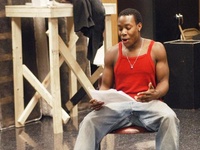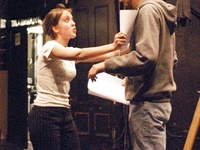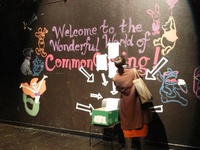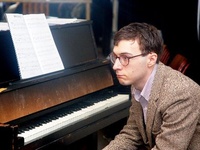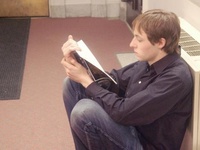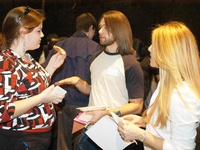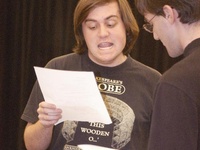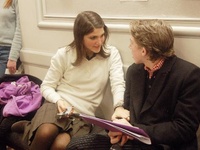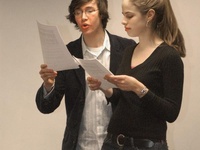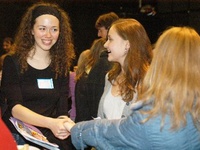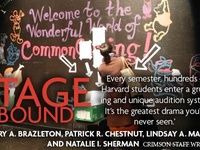But still, she insists that her professionalism has other causes. "It’s less about an image and more about respect for the work we’re doing," she says.
Spillane-Hinks compares it to the college admissions process. She isn’t looking for something specific or for a reason to mark an actor down, only for the positives they bring. What matters to her most is the actor’s ability to react and change.
"This time could you try to get him to laugh?" she asked one actress she had never seen before. Giving actors notes like this is important to Spillane-Hinks; it levels the playing field, giving her an idea of what these unknown quantities will be like in rehearsals.
"It’s about looking for actors who are willing to listen to the text, listen to each other, and listen to me," she says.
Hanley and his crew sit behind a long table in the basement of the Loeb Drama Center. In the long stretches of idleness, they worry about turnout for "Chicago," although rumors that "everyone" was talking about their show in Annenberg seem to cheer the gang’s spirits.
There is a strange moment of silent formality as the first few actors hand in their Common Casting forms. The moment before performance is the actor’s last moment of anonymity.
Kaszynski arrives at auditions from his regular Ballroom Dancing lessons, clad in a tight black tee and dark jeans.
"And left-right-left, booty-shake-shake-shake," chants the choreographer of "Chicago" as she teaches a dance to boys who try to master the counts. Kaszynski, though slower to learn the steps than the others, looks focused and comfortable.
After the dance, Kaszynski is given a monologue and delivers his lines clearly and forcefully, Polish accent and all. Then comes the singing. Kaszynski does not have a song prepared, so is given the notes and lyrics to "Maybe This Time" from "Cabaret."
"It’s going to be semi-slash-totally embarrassing," Kaszynski says, panicking a little before the performance. His voices shakes, and the tune wanders into upper echelons, but he survives.
Although most of the casting decisions come down to intangible factors like "presence" and the actor’s particular "fit" for "Chicago," Hanley relies on formulaic tests, like giving actors a nervous tic, to evaluate the auditioners. "Okay, I want you to do it again. This time, I’m going to give you a spasm," Hanley says to another auditioning actor.
At first, Hanley’s notes are copious and detailed, and there are long discussions about each actor. Time still seems unlimited to them.
As the week progresses and more actors audition, difficulties particular to Harvard’s Common Casting system start to clutter the way. The system is particularly tricky for Hanley because "Chicago" is a musical, and so he has to audition people for three different skills: singing, acting, and dancing. There are so many small parts to cram into a single audition space and a few minutes of time, that it’s hard to coordinate everything.
Although clearly frustrated, Hanley is unwilling to pin blame specifically on the HRDC’s inability to provide space, stressing that "it’s not their fault" and that the need for more space is universal across Common Casting.
CALLBACKS
If Common Casting is a play in itself, then callbacks are the tense climax.
The mood is subdued Saturday morning as callback lists are posted. Actors walk around the black box with notebooks, writing down the wheres and whens of their callbacks.










